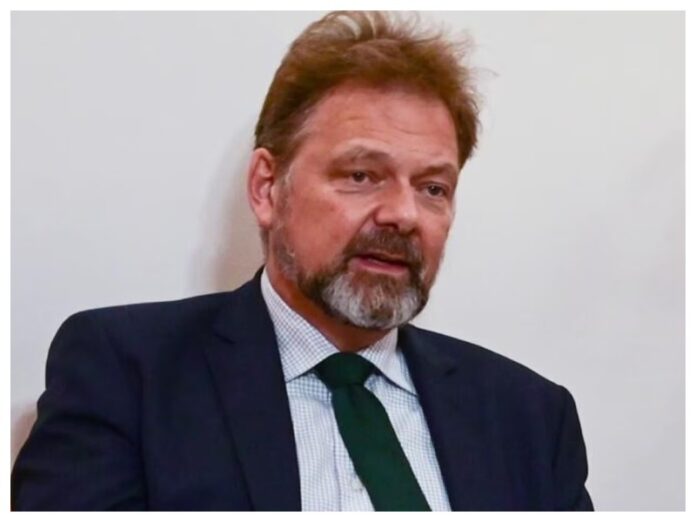German Ambassador to India and Bhutan, Philipp Ackermann, addressed a gathering at the Pune Public Policy Festival on Friday, offering insights on several political matters, including the potential for US President-elect Donald Trump to secure a third term in the White House and Germany’s evolving stance on migration.
On the topic of Trump seeking a third term, Ackermann noted that the chances of revoking the 22nd amendment of the U.S. Constitution were “very little.” He explained that political dynamics in the U.S. make such an outcome highly unlikely. “There is not an overwhelming majority. The House is very close and the Senate is also very close. In two years’ time, there will be midterm elections and history shows that the midterm election will swing the pendulum in the other way and you do not have both the houses under Republican leadership. It is my forecast. I think the chances of revoking the 22nd amendment are very little,” Ackermann said.
Discussing migration, Ackermann highlighted that the issue remains a crucial part of Germany’s internal politics. He pointed out that 30 per cent of the German population has at least one non-German parent, and 20 per cent have two non-German parents, illustrating Germany’s transformation into a key immigration destination over the past few decades.
“I would say that the core of Germany’s internal politics is migration. You have to imagine that 30 per cent of the German population has one non-German parent and in 20 per cent of the German population, there are two non-German parents. Basically, our country has turned in the last 20-25 years into a complete immigration country,” Ackermann remarked.
He went on to praise Germany’s liberal immigration laws, which allow individuals with the right qualifications to enter the country and search for employment without needing a job contract. “We would have the most liberal immigration laws in the Western world. When you want to move to Germany and if you have the right qualifications, you do not need a contract. You can come to Germany and look for a job. There are many Indians who are taking this opportunity to say that the Indian community is growing,” he added.
However, the Ambassador acknowledged the challenges associated with refugee and asylum-seeking illegal immigration, particularly during the surges in 2015-16 and 2022-24, when large numbers of Syrians and Ukrainians arrived in Germany. “But there is another part. What people felt overwhelmed with was the refugee asylum-seeking illegal immigration they have experienced in the last 10 years. In 2015-16, we had millions of Syrians coming to Germany and in 2022-24 we had millions of Ukrainians coming to Germany,” Ackermann noted.
He emphasized that Germany is working to strike a balance, reducing illegal migration while promoting legal immigration. “What we are trying to achieve is to reduce illegal migration and promote legal migration,” he said.
Concluding his comments, Ackermann underscored that Germany’s asylum laws, which offer protection to persecuted individuals, should remain intact. At the same time, efforts are being made to manage migration more effectively, ensuring that legal migration remains a priority.


